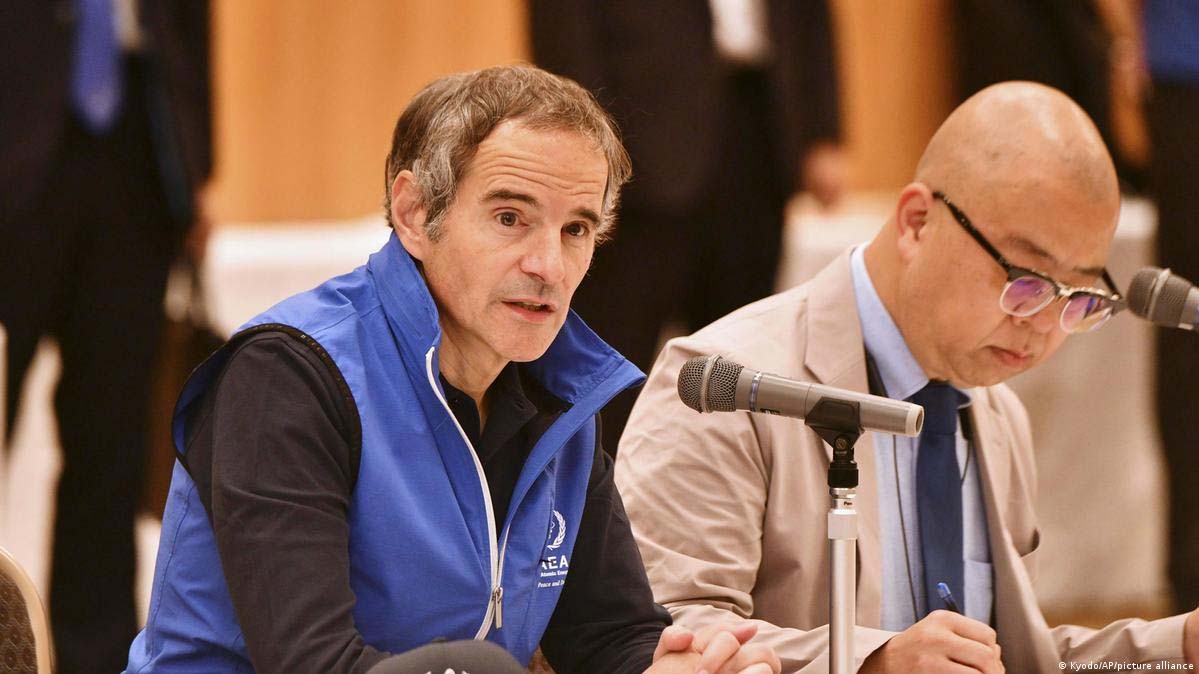In Tomioka, Japan, the chief of the U.N. atomic agency addressed local Japanese representatives during a meeting in Fukushima, asserting that the continuous release of treated radioactive wastewater at the devastated nuclear facility conforms to safety standards. He emphasized that any restrictions on products originating from the area lack scientific basis.
Director-General Rafael Grossi of the International Atomic Energy Agency (IAEA) convened with local officials, as well as delegates from fishing and business sectors, reassuring them that the discharges are executed with minimal impact on the environment, water bodies, fish populations, and sediments.
Arriving in Japan on Tuesday, Grossi returned to Fukushima for the first time since the commencement of treated water release in August. Later on Wednesday, he plans to inspect the discharge and sampling facility. His previous visit to the plant in July, followed by an IAEA review, predicted negligible effects from the discharges, a conclusion reaffirmed in the agency’s comprehensive report, asserting adherence to international safety standards.
The Fukushima plant’s power supply and reactor cooling functions were severely compromised by the 2011 disaster, leading to triple meltdowns and the accumulation of substantial volumes of radioactive wastewater. After over a decade of cleanup efforts, the plant initiated the discharge process on August 24, treating and diluting the water with large quantities of seawater, a task expected to span decades.
Opposition to the discharges has been voiced by fishing groups and neighboring countries, notably China, which imposed a blanket ban on Japanese seafood immediately after the commencement of the release.
Speaking at the meeting in Iwaki, south of the Fukushima Daiichi plant, Grossi emphasized, “There is no scientific rationale for imposing restrictions on products from our region,” highlighting the political dimensions of the issue, particularly concerning neighboring countries expressing apprehensions.
Despite initial concerns regarding the impact of water discharge on Fukushima’s beleaguered fishing industry, domestic reputation remains intact, with China’s seafood ban primarily affecting scallop exporters in Hokkaido. Tokyo has allocated a fund exceeding 100 billion yen ($680 million) for compensation and support measures, including assistance in identifying alternative export markets.
Grossi underscored the protracted nature of the discharge process, emphasizing the imperatives of transparency, technical precision, and inclusive dialogue. He reiterated the IAEA’s commitment to independent monitoring, noting the presence of its office and laboratory at the Fukushima plant.
Engaging with residents, Grossi not only conveyed key points about the discharge but also expressed a willingness to learn from their perspectives. He pledged continued engagement with Fukushima residents to address their concerns and needs.
In response to escalating fuel costs following Russia’s invasion of Ukraine and mounting pressure to achieve decarbonization goals, Prime Minister Fumio Kishida’s government has revised its stance on nuclear energy, advocating for its expanded utilization as a stable and clean power source.
Expressing support for Japan’s nuclear capacity enhancement, Grossi, in a meeting with Economy and Industry Minister Ken Saito, offered technical assistance for the rehabilitation of the Kashiwazaki-Kariwa nuclear power plant in Niigata. Operated by the Fukushima Daiichi operator, the plant faces challenges related to safeguarding measures, prompting efforts for its expedited restart.
In an endeavor to bolster public confidence, IAEA plans to dispatch a team of experts to the plant later this month to collaborate with Tokyo Electric Power Company Holdings.
However, the prospect of restart remains contingent upon the consent of the host community, with recent seismic activity in the nearby Noto region reigniting safety concerns.




